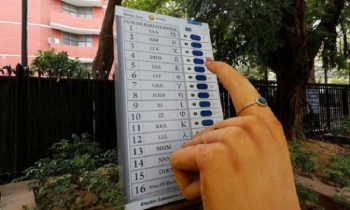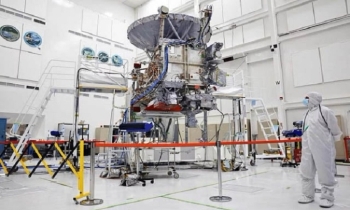Nokia launches ‘Made in Bangladesh’ smartphones
BI Report || BusinessInsider

Nokia launches made in Bangladesh smartphone. Business Insider Photo
HMD Global introduces the Nokia G-series smartphone, which is now manufactured in Bangladesh. With the debut of the G10 and G20 models, HMD Global Bangladesh on Thursday announced the much-anticipated launch of Nokia G-series handsets in Bangladesh.
Both of these sets were made in a factory in Bangladesh's Bangabandhu Hi-Tec City in Kaliakair, Gazipur. Vibrant Software (BD) Ltd, a joint venture between Vibrant Software of the United Kingdom and the Union Group of Bangladesh, has opened the first plant in Bangladesh to produce the world-famous Nokia smartphone, according to a press release.
The announcement of “Made in Bangladesh” was officially made at a hotel in the capital.
Ravi Kunwar, general manager Pan Asia, HMD Global Siad “Both of these sets were made in a factory in Bangladesh's Bangabandhu Hi-Tec City in Kaliakair, Gazipur. Vibrant Software (BD) Ltd, a joint venture between Vibrant Software of the United Kingdom and the Union Group of Bangladesh, has opened the first plant in Bangladesh to produce the world-famous Nokia smartphone.”
The phone – Nokia’s G-series represents a perfect combination of features that will meet your daily needs through straightforward problem-solving technology. Both G10 and G20 have three-day battery life, alongside side fingerprint unlock and an impressive 6.5inch teardrop display with a handy brightness boost, it reads.
The two-story plant is being built at the Bangabandhu Hi-Tech city in Gazipur's Kaliakair. To assure the best quality of completed products, there are several quality control systems, both automated and human controlled.
Alvee Rana, director of Union Group shared, “Being a partner of a global brand like Nokia is big honor for us. This will certainly help us to gain more market share in the smart phone market as well as providing consumers more affordable handsets.”
Initially, the factory will process 300 units of smartphone every day through six productions; lines of which 4 are for assembling and 2 for packing. they plants is facilized with all required infrastructure, including its own testing laboratory and employs around 200 workers.
The price for the locally produced Nokia smartphones will be 30 percent compared to the imported handset.
The plan of growing the market of these handset is so big but their first target is to fulfill the demand of our countries’ people first, then they will try to export these to worldwide.







































